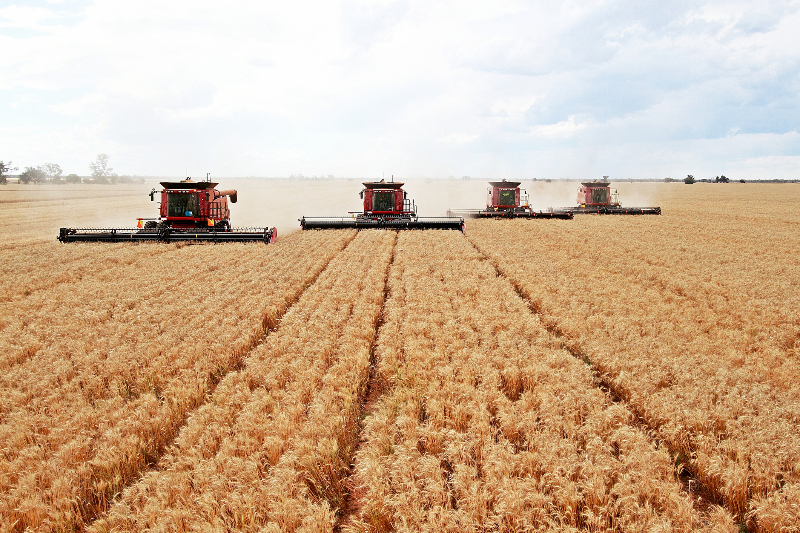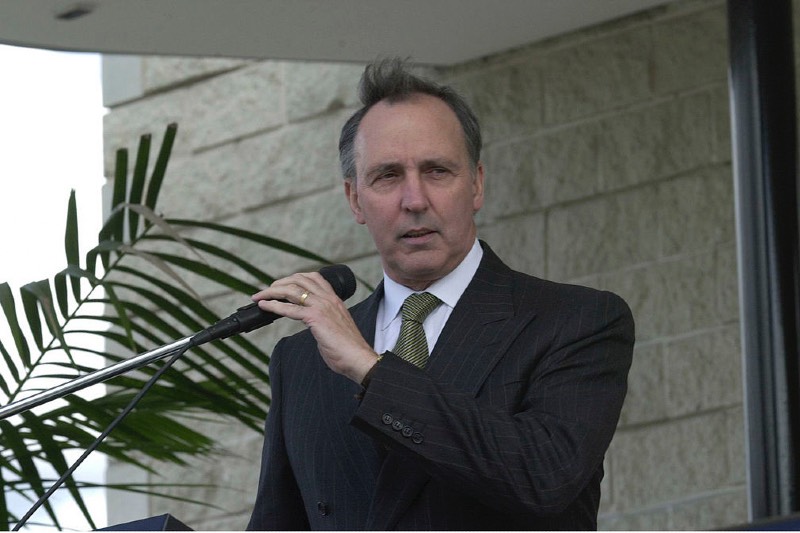Author: David James
There are more than 60 results, only the first 60 are displayed here.
Become a subscriber for more search results.
-

ECONOMICS
- David James
- 04 January 2022
3 Comments
There really is no such thing as ‘capitalism’ — or rather there are so many capitalisms that the word is altogether too imprecise to be useful. A much better term to identify the problems, even evils, of modern developed economies is ‘corporatism’. This can be precisely identified and its transgressions and general harm are getting worse.
READ MORE
-

ECONOMICS
- David James
- 06 December 2021
4 Comments
If Australia does draw back from globalisation — as opposed to trade, which will continue — then there should be more focus on our primary sector and how it could be better financed. Australia’s long history as a primary producer constitutes what economists call a ‘comparative advantage’: an economic area in which a country does best while giving up the least.
READ MORE 
-

ECONOMICS
- David James
- 08 November 2021
4 Comments
The Glasgow United Nations Climate Change Conference has been advertised as an effort to focus on sustainable environmental solutions. What got much less attention, if any, is that it is probably at least as much about having a sustainable financial system. Many noted that China, did not send its leader: Xi Jinping, president of the world’s greatest CO2 emitter. There was also another significant absence: the financiers who are hoping to profit from the trillions allocated into climate change projects.
READ MORE 
-

ECONOMICS
- David James
- 12 October 2021
4 Comments
Over the last two years, money printing has created the illusion of strength in savings. But when reality resurfaces, and actual returns are required from actual economic and business activity, the global financial system will come under extreme stress.
READ MORE 
-

ECONOMICS
- David James
- 07 September 2021
4 Comments
There is a three-way battle looming over the future of money and the stakes could scarcely be higher. Conventional money, mainly debt created by banks — the ‘folding stuff’ is only a tiny proportion of the total — is in trouble. Total global debt is now so large relative to the world economy it cannot be serviced, which is why monetary authorities have resorted to dropping interest rates. When they almost hit zero, the next step was quantitative easing (QE): printing money by getting the central bank to buy back government and corporate bonds and putting them on its ‘balance sheet’.
READ MORE 
-

ECONOMICS
- David James
- 12 August 2021
4 Comments
The biggest mystery of the financial markets is why, when the monetary authorities have been printing money with their ears pinned back, is inflation for the most part not a problem? What happens with inflation is crucial to the short-term survival of the whole system. Global debt, which is running at well over 300 per cent of global GDP, is only sustainable because interest rates are exceptionally low (the base rate in Australia is only 0.1 per cent). And interest rates are low because inflation is not a problem.
READ MORE 
-

ECONOMICS
There really is no such thing as ‘capitalism’ — or rather there are so many capitalisms that the word is altogether too imprecise to be useful. A much better term to identify the problems, even evils, of modern developed economies is ‘corporatism’. This can be precisely identified and its transgressions and general harm are getting worse.
READ MORE 
-

ECONOMICS
An often overlooked fact about the financial system is that it entirely depends on trust. When trust starts to evaporate, especially between the big players such as banks and insurance companies, the whole artifice is put into peril. Trust in the system is now at an extreme low and that points to extreme danger.
READ MORE 
-

ECONOMICS
But although the Coalition will never admit it, it looks suspiciously like there has been some bipartisan institutional learning about how to manage financial crises. If you want to stimulate an economy in times of crisis put the money directly into the economy, either into people’s pockets or to businesses who then pass it on to workers.
READ MORE 
-

ECONOMICS
- David James
- 08 April 2021
5 Comments
It is one of the ironies of Australian political history that a policy that has profoundly benefited this country’s version of capitalism came, not from the right, but from the Labor party and unions. The mandating of superannuation payments in 1992 under the Keating government has profoundly changed Australia’s financial system.
READ MORE 
-

ECONOMICS
- David James
- 09 March 2021
5 Comments
Social media companies are adopting a strategy that may go down in history as among the worst corporate mistakes ever. Google and Facebook are now monopolies and, like all monopolies, they no longer see their main interest as serving customers but rather to capture governments in order to protect their market dominance.
READ MORE 
-

ECONOMICS
- David James
- 09 February 2021
5 Comments
The controversy over the shares of US video game company GameStop has again exposed what has long been obvious: there is something seriously rotten in the state of the world’s financial markets. It was a battle between a hedge fund, Melvin Capital, which manages $US13 billion, and a small group of ‘amateur’ investors who communicated with each other on a Reddit forum called WallStreetBets.
READ MORE 